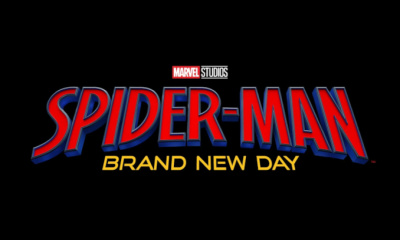Patty Jenkins’ Wonder Woman broke all kinds of gender-based records with a rip-roaring North American debut estimated at $100.5 million. Teaming up with Dreamworks Animation’s cartoon superhero Captain Underpants, Wonder Woman resuscitated Hollywood’s summer movie season that was reeling from the effects of the worst Memorial Day weekend of the 21st Century. This weekend’s total of the top twelve films was up 38% from the first post-Memorial Day weekend in 2016, when Teenage Mutant Ninja Turtles 2 debuted with $35.3 million.
Jenkins’ Wonder Woman is the first stand-alone female superhero film since two notable failures from the aughts, Catwoman in 2004, and Elektra in 2005, and perhaps its success will overcome some studio executives’ well known prejudice against distaff superheroes (see “Wondering Why There Is No Black Widow Movie?”). There is no doubt that Wonder Woman’s debut has set new records, both domestic and global, for the size of a debut of a film from a woman director. In addition to its $100.5 million domestic bow, Wonder Woman earned $122.5 million overseas for current global cumulative of $223 million, meaning that in just three days Wonder Woman has earned more than Warner Bros.’ expensive Green Lantern film took in during its entire global run. By next weekend Wonder Woman will have earned more than any other DC Comics film that does not feature either Batman or Superman (not adjusting for inflation).
Maybe even more importantly with a 93% positive rating on Rotten Tomatoes and a solid “A” CinemaScore from opening weekend audiences, Jenkins’ Wonder Woman has at last recaptured the cachet of quality that made Christopher Nolan’s Dark Knight Trilogy so potent at the box office. Wonder Woman is the first film in Warner Bros.’ “extended DC cinematic universe” to win over both critics and audiences, and she has singlehandedly revived a sinking franchise that was mired in its own cinematic gloom. Although Wonder Woman will face stiff competition in the coming weeks, it could display the kind of “legs” that get it to $300 million domestic.
Wonder Woman posted the sixteenth best superhero opening ever, and the sixth best for non-sequels, as well as the sixth best June opening ever (not adjusted for inflation). The majority (52%) of the opening weekend audience for Wonder Woman was female, in contrast to the typical superhero film, which typically skew male (often as much as 60%). If there is one warning sign in Wonder Woman’s opening demographics, it is that the audience skewed older with 47% over 35, and just 14% under 18 for the “PG-13” release—though superhero films with male stars also tend to skew older.
Second place went to Dreamworks Animation’s adaptation of Dave Pilkey’s Captain Underpants, which came in just a hair under expectations with an estimated $23.5 million. While this is one of the smallest openings for a Dreamworks Animation title (#26 out of 35 produced so far—not adjusting for inflation), Captain Underpants cost just $38 million to produce, making it far cheaper than the typical Dreamworks feature, and attendance could pick up as more kids get out of school, though heavy competition is coming soon in the form of two heavyweight “threequels” Cars 3 and Despicable Me 3.
Since Captain Underpants is a male superhero it is no surprise that played to an audience that skewed male (54%), and given the film’s propensity for toilet humor (the villain is named “Pippy P. Poopypants”), it is no surprise that the audience, in contrast to Wonder Woman, skewed younger with 65% under 25. Boys made up 60% of the under-25 crowd, and 91% of the under-25 segment were from 7-12 years old. Captain Underpants received an OK “B+” CinemaScore, which indicates that it could continue doing well with the underage crowd until something better comes along.
Disney’s Pirates of the Caribbean: Dead Men Tell No Tales, which won the Memorial Day box office in underwhelming fashion, is displaying more signs of “franchise fatigue” here in North America as it dropped 66% in its second weekend, earning $21.5 million, bringing its domestic total to $114.6 million. As it appears now Dead Men Tell No Tales could well end up its domestic run $80-$100 million behind its predecessor On Stranger Tides, which earned $240 million in 2011, and even further behind the first three Pirates films, which earned between $300 and $423 million here in North America.
The problem for Disney is Dead Men Tell No Tales’ $250 million production cost. The good news is that the film continues to do well overseas, where it has earned $386.6 so far (a whopping 77.1% of its total). If it continues to perform well outside of North America, Dead Men Tell No Tales could eventually show a modest profit for the studio, but the franchise is in serious trouble here North America, where it has earned $27 million less than it has already amassed in China.
Disney also grabbed the #4 spot with Guardians of The Galaxy Vol.2, which earned $9.7 million to bring its domestic total to more than $355 million (the second highest total of 2017 so far). With a global haul of $816.6 million Vol. 2 is now the fifth highest-grossing film in the Marvel Cinematic Universe (not adjusting for inflation). Look for Vol. 2 to finish with around $850 million.
The R-rated action comedy Baywatch dropped 54.1% in its second frame, earning $8.5 million to bring its domestic total to $41.7 million. Unfortunately Paramount spent $70 million to produce Baywatch (and millions more to market the film), so it will have to do very well overseas just to break even. So far it has earned $25.5 million overseas, which means it has a long way to go before getting out of the red, but even if Paramount does take a bit of a bath on the film, it won’t be like the soaking that Warner Bros. is going to take on Guy Ritchie’s $175 million King Arthur: Legend of the Sword.
Another film that will be dependent on overseas earnings to escape red ink is Ridley Scott’s Alien: Covenant, which tumbled 62.3% in its third weekend, earning just $4 million to bring its domestic total to $67.2 million. Working in the film's favor is its $97 million production cost. It has already made $106 million overseas, and opens in China in two weeks—so it has a real chance to break even, or perhaps show a modest profit, if it does well in the Middle Kingdom.
Low budgets can make a difference. Warner Bros.’ adaptation of the YA novel Everything, Everything cost just $10 million to produce, and has earned $28.3 million without gaining much notice.
The final three films in the top ten are in trouble. The Amy Schumer R-rated comedy Snatched is shedding theaters and earned just $1.3 million to bring its domestic total $43.9 million. With limited prospects overseas, and a $42 million production cost, Snatched looks like it will end up a modest loser for Fox.
Fox is also behind the rebooting of the Diary of a Wimpy Kid franchise, with Diary of a Wimpy Kid: The Long Haul, which tumbled 73% in its third weekend as it earned just $1.2 million to bring its domestic total to $17.8 million. With a $22 million production cost, Fox’s losses will be fairly small, but at this point they look unavoidable.
Tenth place went to a film that will put a dent in a studio’s bottom line, Guy Ritchie’s King Arthur: Legend of the Sword, which dropped 65% in its fourth weekend as it earned just $1.1 million to bring its North America total to $37. 2 million—not much when considering the movie’s massive $175 million cost.
Be sure to check back here next week to see if Wonder Woman can hold off a horde of newcomers led by Universal’s attempt to jump start its Marvel-esque Dark Universe (see “Universal Unveils Its Dark Universe”) with the Tom Cruise-starring The Mummy, plus the dog/war story Megan Leavey, the horror film It Comes At Night, and in limited release (500 theaters), the mystery/romance My Cousin Rachel.

Top 12 Box Office Up 38%
Posted by Tom Flinn on June 4, 2017 @ 2:54 pm CT
MORE COMICS
YouTuber's Self-Published First Volume Sold 200,000 Copies DTC
August 11, 2025
The self-published edition of the first volume of the YouTuber’s graphic novel sold over 200,000 copies direct to consumers when it was released in 2024.
Showbiz Round-Up
August 11, 2025
The summer heat is on, and Hollywood news is boiling over. Time for a round-up!
MORE COLUMNS
Column by Scott Thorne
August 11, 2025
This week, columnist Scott Thorne notes a new twist in the Diamond Comic Distributors saga and shares his thoughts on the Gen Con releases that will make the biggest impacts.
Column by Jeffrey Dohm-Sanchez
August 7, 2025
ICv2 Managing Editor Jeffrey Dohm-Sanchez lays out the hotness of Gen Con 2025.








